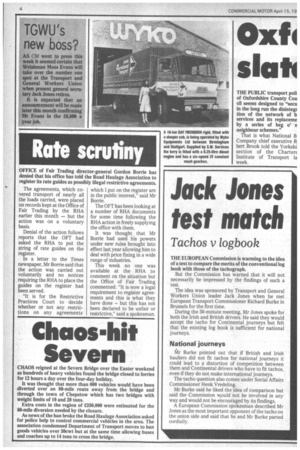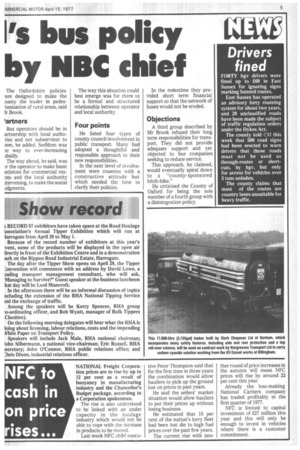THE PUBLIC transport poll of Oxfordshire County Cou cil seems
Page 6

Page 7

If you've noticed an error in this article please click here to report it so we can fix it.
designed to "secu in the long run the disintegr tion of the network of b services and its replaceme by a series of beg o' n neighbour schemes."
That is what National B Company chief executive R bert Brook told the Yorkshi section of the Charter€ Institute of Transport la week. The Oxfordshire policies rere designed to make the Dunty the leader in pedesianisation of rural areas, said Ir Brook.
'artners
Bus operators should be in artnership with local authoties and not subservient to iem, he added. Serfdom was ie way to ever-increasing absidy.
The way ahead, he said, was ir the operator to make basic ecisions for commercial reams and the local authority itervening, to make the social Adgments. The way this situation could best emerge was for there to be a formal and structured relationship between operator and local authority.
Four points
He listed four types of county council involvement in public transport. Many had adopted a thoughtful and responsible approach to their new responsibilities.
In the next level of involvement were counties with a constructive attitude but which needed the time to clarify their policies. In the meantime they provided short term financial support so that the network of buses would not be eroded.
Objections
A third group described by Mr Brook refused their long term responsibilities for transport. They did not provide adequate support and yet objected to bus companies seeking to reduce service.
This approach, he claimed, would eventually spiral down to a "county-sponsored hitch-hike."
He criticised the County of Oxford for being the sole member of a fourth group with a disintegration policy.




























































































